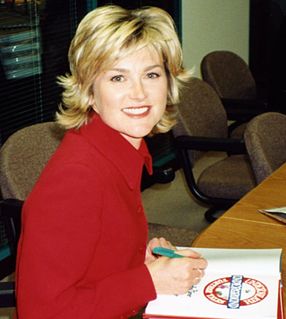A Quote by Rebecca West
The delight we find in art amounts to recognition of a saving grace, to an acknowledgment that the problem of life has a solution implicit in its own nature, though not yet formulated by the intellect.
Related Quotes
I think that there is only one way to science - or to philosophy, for that matter: to meet a problem, to see its beauty and fall in love with it; to get married to it and to live with it happily, till death do ye part - unless you should meet another and even more fascinating problem or unless, indeed, you should obtain a solution. But even if you do obtain a solution, you may then discover, to your delight, the existence of a whole family of enchanting, though perhaps difficult, problem children, for whose welfare you may work, with a purpose, to the end of your days.
As a writer, I'm too busy and worried to experience the delight while composing my own work, although, of course, I hope a reader will find something of it when the work is complete. But I do try to figure out where in their experiences certain characters of mine, who are not necessarily readers, and certainly not writers or artists, find an equivalent sensation: of delight, of astonishment, of whatever it is that briefly - and brevity seems essential - reassures us, connects us, sends a shiver of inarticulate recognition down our spines: Oh, yes: life.
To be a responsible person is to find one's role in the building of shalom, the re-webbing of God, humanity and all creation in justice, harmony, fulfillment and delight. To be a responsible person is to find one's own role and then, funded by the grace of God, to fill this role and to delight in it.
The solution to a problem - a story that you are unable to finish - is the problem. It isn't as if the problem is one thing and the solution something else. The problem, properly understood = the solution. Instead of trying to hide or efface what limits the story, capitalize on that very limitation. State it, rail against it.
I see that nature offers us a solution to everything that we call a problem. If you can just find your own nature and live it as naturally as you possibly can and be in a state of awe over everything, it doesn't matter where you are. It almost speaks to you and says, "There's no reason to be upset about anything. It will pass." If it's really going to pass, why stay confused by it and depressed by it. Just watch it go. It's on its way out. That's what I began to do.
Movement, change, light, growth and decay are the lifeblood of nature, the energies that I I try to tap through my work. I need the shock of touch, the resistance of place, materials and weather, the earth as my source. Nature is in a state of change and that change is the key to understanding. I want my art to be sensitive and alert to changes in material, season and weather. Each work grows, stays, decays. Process and decay are implicit. Transience in my work reflects what I find in nature.
I see the war problem as an economic problem, a business problem, a cultural problem, an educational problem - everything but a military problem. There's no military solution. There is a business solution - and the sooner we can provide jobs, not with our money, but the United States has to provide the framework.
No matter how clear things might become in the forest of story, there was never a clear-cut solution, as there was in math. The role of a story was, in the broadest terms, to transpose a problem into another form. Depending on the nature and the direction of the problem, a solution might be suggested in the narrative. Tengo would return to the real world with that solution in hand. It was like a piece of paper bearing the indecipherable text of a magic spell. It served no immediate practical purpose, but it contained a possibility.



































